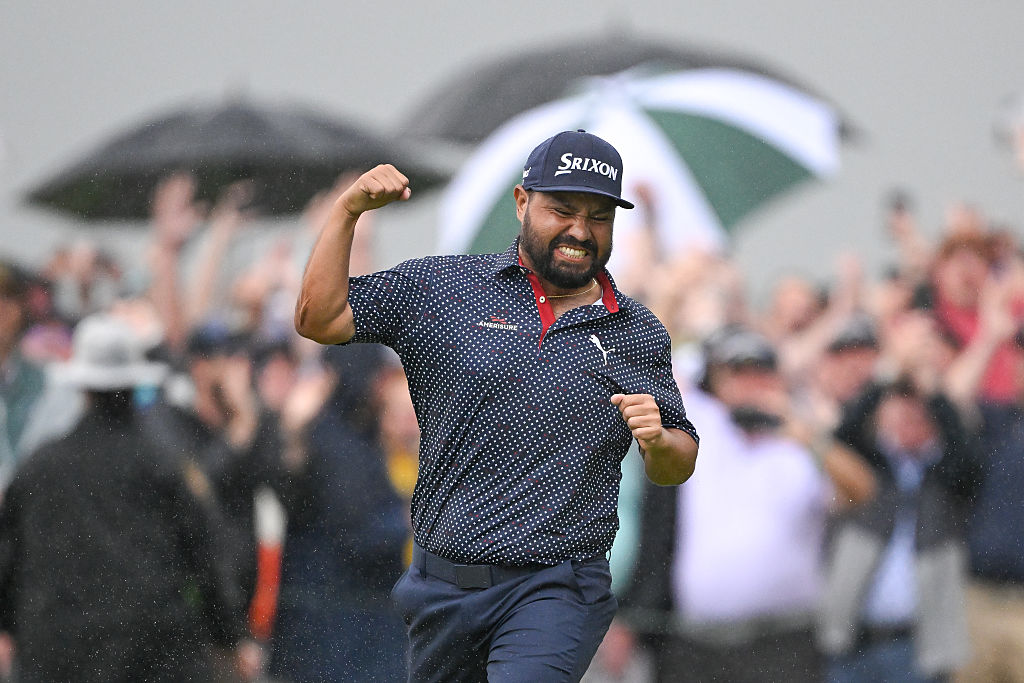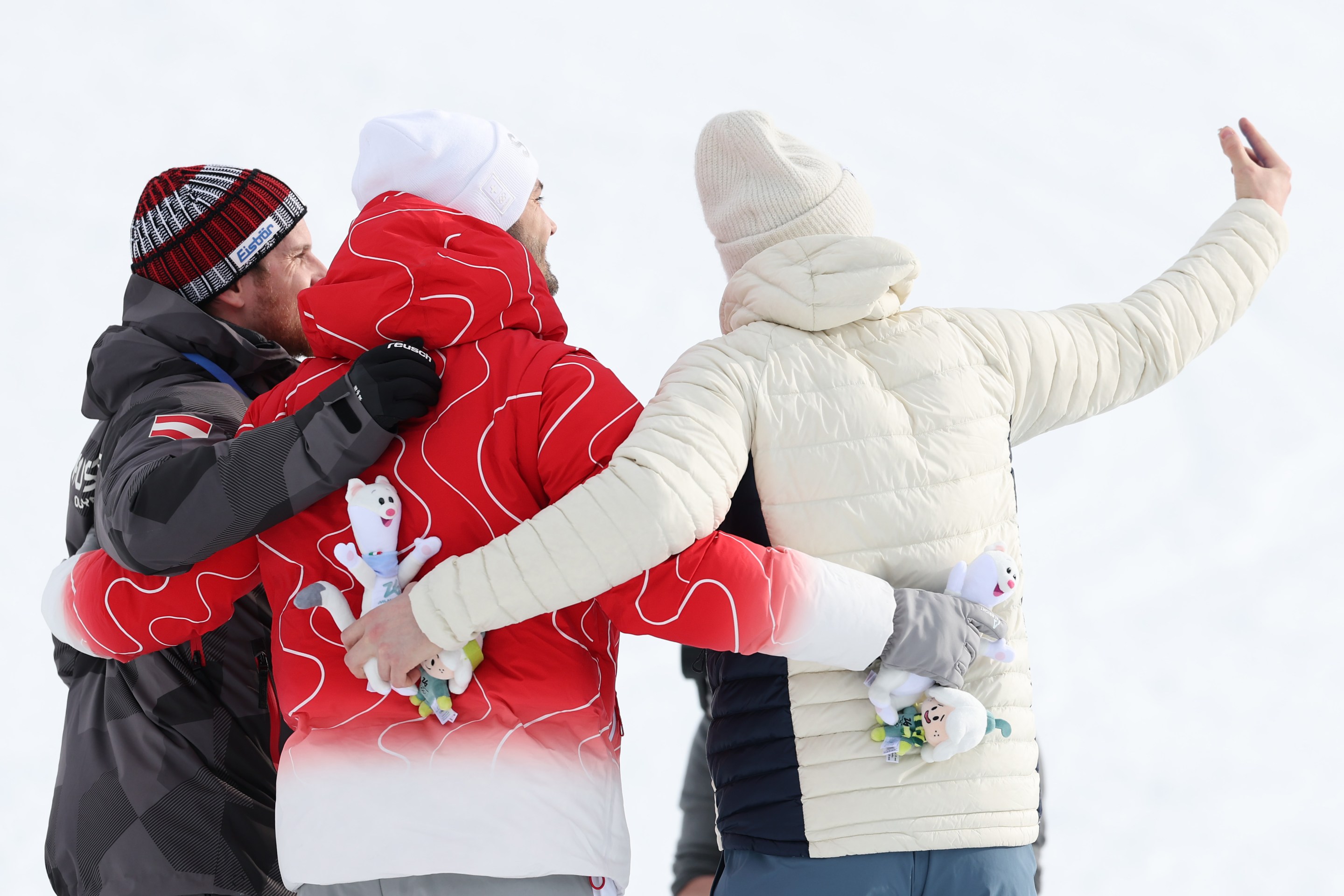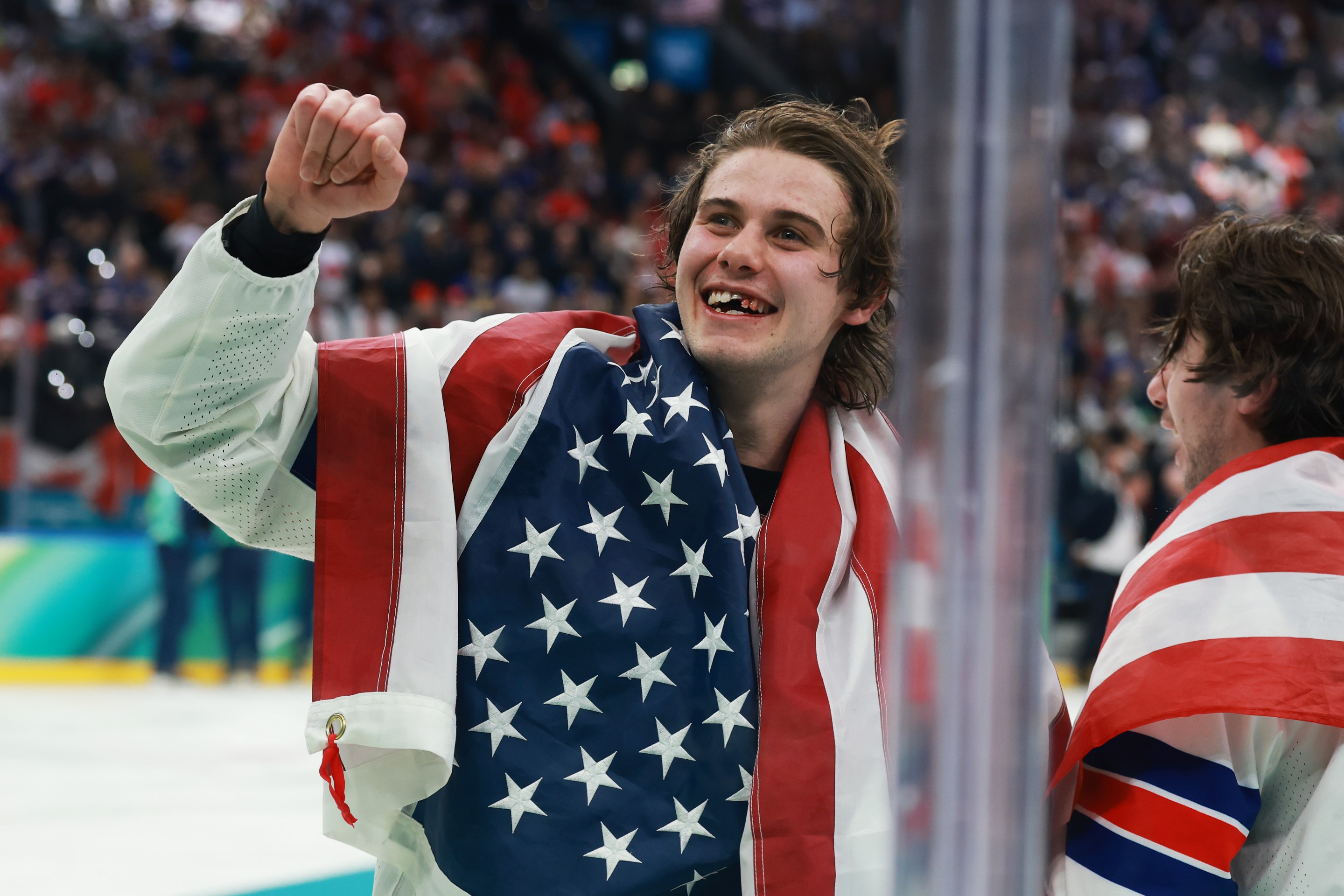The U.S. Open is a notoriously difficult tournament even under normal circumstances, but forcing professional golfers to play in the kind of weather that tormented the greater Pittsburgh area on Sunday was a televised exercise in humiliation. Battling relentless rain that essentially gave Sunday's action an extended halftime break, contending players like Adam Scott and Sam Burns sunk themselves with final-round scores of 78 and 79 respectively, as a course saturated with water worked to make their lies as miserable as possible. To put golfers in these conditions is like trying to make Sabrina Ionescu shoot threes in a wind tunnel, or Harry Kane take a penalty with a ball made of lead. It stops being about "Who's the best?" and starts being about "Who can survive?"
OH NO! DISASTER! Tyrrell Hatton
— JM =^) (@jm539581.bsky.social) 2025-06-16T00:03:20.921Z
One of the golfers seemingly laid low by the cruelty of this course on this day was J.J. Spaun. He started just one stroke behind the leader, Burns, but fell back into the abyss with bogeys on five of his first six holes. The 34-year-old Spaun has been on a good run lately, losing a playoff to Rory McIlroy at The Players Championship earlier this year, but if you were the type of golf fan who only watches the majors, you would not have heard of him at all. He didn't make the cut in his one U.S. Open appearance back in 2021, hasn't played a British Open, and had an all-time best finish of 23rd in the other two big ones. But on an afternoon and evening where almost nobody was playing well, Spaun found something that the rest of the field just didn't have. Resetting after the weather delay, Spaun consistently made pars and then sunk a long putt for birdie on 12. He made another nice putt for birdie on 14 for the outright lead, and with Burns collapsing, he entered the final hole in control of his own destiny.
The end of the tournament came down to Spaun and Robert MacIntyre, who shot a stellar 68 but was watching from the clubhouse. If Spaun made par or better on 18, he would win. If he bogeyed, it would force a playoff—one that, because of darkness, would have to wait until the next day.
The NBC commentary crew portrayed Spaun as a guy who wasn't lacking for talent but had struggled to master the mental part of golf. In their telling, he was a journeyman who invited failure because he expected it. But with an explanation that I'm still struggling to wrap my head around, they conveyed that he's improved his play in his mid-30s in part thanks to the 2004 rom-com Wimbledon, which he watched on a plane. That movie, where Paul Bettany plays an aging, adrift tennis player who puts together the kind of tournament they script in Hollywood, apparently gave Spaun some motivation that his career could still hold some exciting surprises.
"I was watching, and I was like, 'Oh, maybe that could be me,'” he said after he led the first round on Thursday.
Maybe an earlier version of Spaun would have already been dreading the long night to come before a playoff, dwelling on his fifth-day triple bogey against McIlroy at the Players. But whatever it was, he didn't play 18 like a guy expecting the worst. His tee shot was perfect. His second shot was totally fine and set him up for a manageable, if tricky, two-putt for the win. Then he caught a fantastic break: His playing partner, Viktor Hovland, hit a ball just behind his, meaning Hovland would putt from almost the exact same circumstances before Spaun had to take his critical attempt, giving the leader a preview of what he had to do.
Hovland did all right with his. Then Spaun, with rain splattering the cameras, took his place on the green. Two shots would have made him immortal; he only needed one. With the longest made putt of the entire tournament, Spaun sent the ball on a steady, curving journey to the flag. This birdie made him the only golfer in the entire tournament to finish with a score below par.
After a day that was all about watching guys get screwed, it was a tremendous shock to see J.J. Spaun, of all people, transcend the course and the weather to take the win so emphatically. Instead of a story about who messed up the least, this U.S. Open was about one guy playing the back nine of his dreams.






